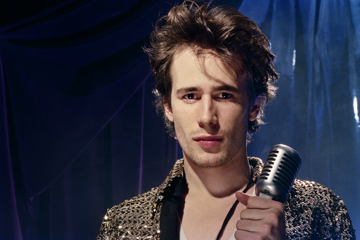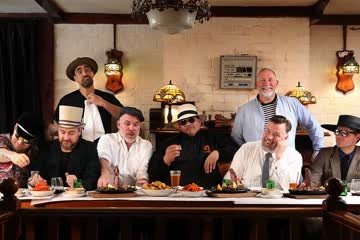Kicking Against "Hillbilly" Stereotypes & "Princess" Mentalities
"I'm really glad to be talkin' to a woman rather than a man because I don't think they woulda been quite so understanding."

"I'm so sorry, can you give me a minute, she's woken up!" Dori Freeman breaks off mid-sentence and runs to check on her three-year-old daughter then rushing back to the phone after a few minutes, is full of apologies. "I'm really glad to be talkin' to a woman rather than a man because I don't think they woulda been quite so understanding. It's ridiculous sometimes... People'll say things like, 'So, you're just gonna go on tour for a week or two and just leave your daughter?' Just things I feel wouldn't be asked of a father if he were gonna go and do the same thing," she drawls in her thick, southwest Virginian accent. Growing up surrounded by musicians — "My earliest memories are of watching my dad and my grandfather play music together... We did a fair bit of travel when I was real small to festivals and competitions" — she hopes to give her daughter similar experiences: "As she gets older I really would love to bring her on tour."
"Appalachian culture in particular seems to be still acceptable to make fun of in America … that real hillbilly image: sittin' out on the front porch with a shotgun in their hand, no front teeth, not educated and stuff like that."
Sitting somewhere between bluegrass, old-time country and contemporary folk, Dori Freeman's self-titled LP brings a new appreciation of her Appalachian roots. "Appalachian culture in particular seems to be still acceptable to make fun of in America," she muses. "Typically what outsiders think is sorta that real hillbilly image: sittin' out on the front porch with a shotgun in their hand, no front teeth, not educated and stuff like that. I just think it's really unfortunate that it's 2016 and people still think that and are afraid of that." She hopes her music can provide "a more positive perspective and show that [Appalachians are] people of art, people of music and real authentic people". "What I'd really like to do is to continue the evolution of this kinda music and put my own voice behind it, make it a bit more approachable."
Freeman had only been "writing songs seriously for about four to five years" before she reached out to acclaimed singer and musician Teddy Thompson via Facebook with a view that he produce her record. "In this day and age, for someone I've admired so much… [the fact that] all I had to do was contact them as easily as sending a Facebook message is amazing," she enthuses. She takes a balanced approach to love throughout the tracks, oscillating between yearning for companionship and embracing individuality: "I like girls to feel like they don't need to wait for anyone to come to their rescue, that they can be their own rescue and that's probably why the song [You Say] is so important to me, especially having a daughter, and a young one at that."
Don't miss a beat with our FREE daily newsletter
In order to bring this message into the home, when it comes to movie time Freeman suggests, "It's hard to navigate standard princess movies where it's all about girls being domesticated or rescued by a man," before adding that Mulan and Brave are among their favourites. "Honestly, for me, her birth was the thing that taught me how to stand up for myself and taught me how to go after what I really wanted, because there was a little person that really depended on me. So now I feel like I am in a place in my life where I'm able to instil values in her, teach her that she is as good as anyone else, and no one is better than her and she's not better than anyone... that she can do absolutely anything she wants to and her mother will be there to support her no matter what it is."







